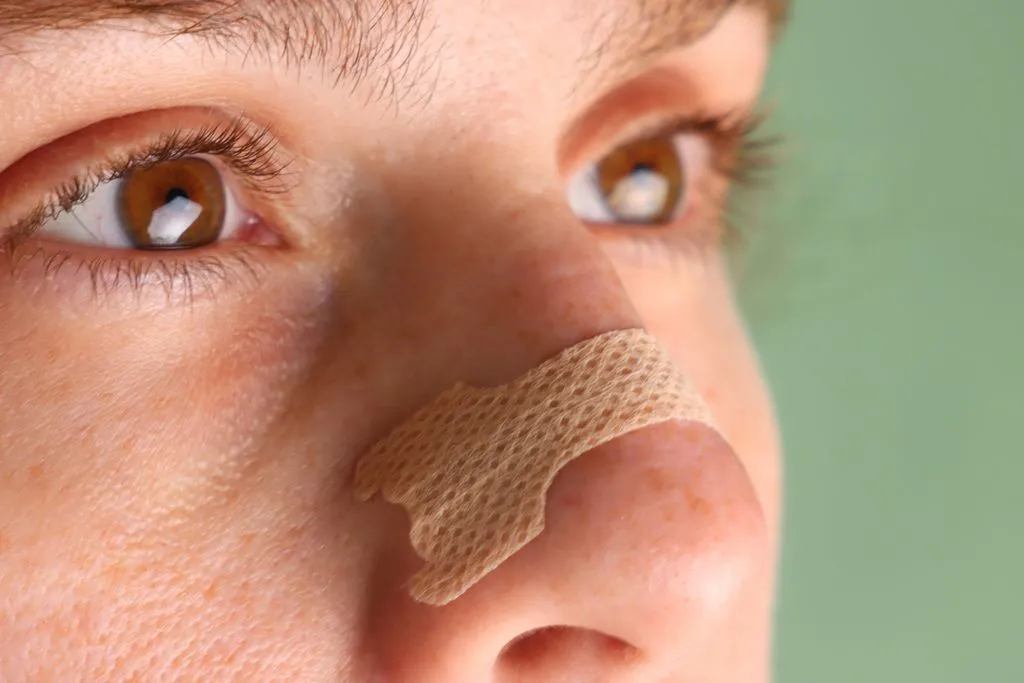Key Takeaways
- Nasal strips improve breathing by widening the nostrils and increasing airflow.
- They are commonly used to reduce snoring, promoting better sleep.
- Athletes may find nasal strips beneficial for enhanced physical performance due to improved oxygen intake.
- While nasal strips can relieve nasal congestion, they may not be effective for complex conditions like sleep apnea.
- Proper application of nasal strips is crucial to maximize effectiveness.
Breathe Easy: The Science Behind Nasal Strips
Benefits of Nasal Dilator Strips
Improved Nasal Airflow and Breathing
Relief of Chronic Nocturnal Nasal Congestion
Reduced Snoring
Better Sleep Quality
Enhanced Athletic Performance
Easy to Use
Busting Myths About Nasal Strips
It’s essential to address one common misconception about nasal strips. Many people think this treatment is a cure-all, which is untrue. Nasal strips provide temporary relief for issues like snoring or mild congestion. However, they do not treat the underlying causes of nasal blockage, such as allergies or a deviated septum.
Why Nose Size Matters
Application Guide: How to Use Nasal Strips Effectively
- Clean and dry your nose to remove oils or moisture.
- Peel the strip from its liner, being careful not to touch the adhesive too much.
- Place the strip across the bridge of your nose, centered and straight.
- Press the strip firmly to secure it, ensuring there are no bumps.
- For removal, wash your face with warm water to loosen the adhesive, then peel off the strip gently.
Evaluating the Evidence: How Effective Are Nasal Strips?
Nasal Strips and Snoring: What Research Says
Considering Nasal Strips for Sports Performance
Possible Skin Irritations and How to Prevent Them
FAQs
What are Breathe Right strips?
Can nasal strips help with sleep apnea?
Are nasal strips safe to use every night?
How do nasal strips differ from nasal sprays?
- Nasal strips physically open the nostrils to improve airflow.
- Nasal sprays use liquids to treat the underlying causes of congestion.
Are nasal strips more convenient than internal nasal dilators?
Can children use nasal strips?
Can nasal strips relieve the symptoms of a deviated septum?
Is the continuous use of nasal strips recommended?
ACT NOW! GET A FREE CONSULTATION!
CALL US NOW TO LEARN MORE ABOUT NOSE TREATMENTS!
Don’t miss this exclusive opportunity to get expert advice and begin your journey towards a new, confident you. Texas Sinus & Snoring’s dedicated team is ready to help you achieve the results you’ve always wanted. Contact us today to schedule your free consultation and take the first step towards a better, more confident you! We will show you how effective nasal strips are and offer the latest treatments for chronic nasal congestion, sinusitis, nasal polyps, and other concerns.




